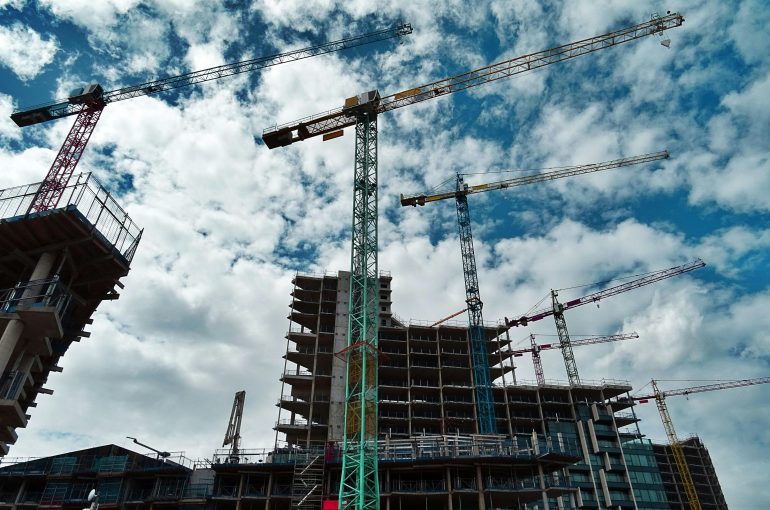SUPREME COURT CLARIFIES IMPOSITION OF LIQUIDATED DAMAGES IN DELAYED CONSTRUCTION CONTRACTS
The Judgment in the Case of Consolidated Construction Consortium Limited v. Software Technology Parks of India (CIVIL APPEAL NO. 5383 OF 2024), was delivered by a Division Bench of the Supreme Court of India, comprising Hon’ble Justice Abhay S. Oka and Justice Ujjal Bhuyan on 28th, April 2025. The case primarily discusses the legality and applicability of liquidated damages in a construction contract where the project was completed after an extended period. It examines the interplay between extensions granted and the imposition of liquidated damages.
Facts of the Case
Software Technology Parks of India (Respondent) awarded a construction contract to Consolidated Construction Consortium Ltd. (Appellant) for building an office and incubation center. The project’s total cost was Rs. 16,48,69,970.00, with an initial completion date set for 15.01.2007. However, the Appellant completed the construction only on 30.11.2007, resulting in a delay of approximately 10 months. The Respondent then deducted Rs. 82,43,499.00 as liquidated damages due to the delay, citing clause 26 of their agreement, and paid the Appellant a balance of Rs. 3,70,992.00 after these deductions.
Main Issues
- Whether the Respondent was justified in levying liquidated damages on the Appellant, considering the extensions granted for the project’s completion.
- Whether the High Court was correct in its interpretation and application of Sections 34 and 37 of the Arbitration and Conciliation Act, 1996, with respect to its powers to set aside or uphold Arbitral Awards?
Contentions by both Parties
Contentions by Appellant
The Appellant argued that the High Court’s Division Bench erred in overturning the Single Judge’s decision, which had rightly set aside the Arbitral Award. They contended that since the Respondent had granted extensions, levying liquidated damages was unjustifiable, especially without proving any loss or damage due to the delay.
Contentions by Respondent
The Respondent defended the deduction of liquidated damages, asserting it was in line with Section 55 of the Indian Contract Act, 1872. They argued that the extensions were granted due to the Appellant’s inability to meet the initial deadlines and that these extensions did not waive their right to claim liquidated damages, as explicitly stated during the extension approvals.
Supreme Court
The Supreme Court directed an Appeal against the Order dated 08.08.2019 passed by the High Court of Judicature at Madras. The High Court had allowed the Appeal of the Respondent and set aside the Order dated 02.01.2019 passed by the Singe Judge of the High Court, which had in turn set aside the Arbitral Award dated 05.01.2010.The Supreme Court held that the Division Bench of the High Court was not justified in reversing the decision of the learned Single Judge under Section 37 of the 1996 Act.The Supreme Court opined that the Division Bench committed an error by restoring the Arbitral Award which had upheld the deduction of liquidated damages by the Respondent.The Supreme Court also stated that the Respondent had extended the time for completion of the contractual work, and the Appellant had completed the construction within an extended period. Therefore, there was no delay in the contractual performance, and the Respondent was not justified in deducting liquidated damages from the contractual dues of the Appellant.The Supreme Court further said that in a construction contract, time is not of the essence, and the employer is entitled to liquidated damages only if the delay has caused loss or damage.The Supreme Court concluded that the Division Bench had ignored the letter dated 26.09.2008 issued by the Respondent to the Appellant, which extended the time to complete the contract up to 30.11.2007, and that the learned Single Judge had rightly noted that the Appellant could not complete the contract work within the initial time frame because of reasons beyond its control.
Parichaya Reddy
Associate
The Indian Lawyer & Allied Services
Editor’s Note: Generally in construction contracts, time is the essence of the contract which means that timelines cannot be changed and the parties have to stick to the time schedule set by them. This is in keeping with Section 55 of the Indian Contract Act. Any deviation in the timelines accepted by the other parties would make the party giving the extension lose it’s rights to claim liquidated damages. The above judgment is in keeping with the above general Law





































Leave a Reply